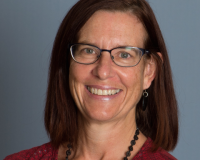
EPOCH-Translate advocates for nurses, bicultural workers, and interpreters in NSW Parliamentary inquiry on early childhood health and development
Professor Elizabeth Denney-Wilson and Ms Heilok Cheng, PhD candidate, represented EPOCH-Translate CRE as witnesses in the NSW Legislative Assembly Committee on Community Services’ inquiry on access to early childhood health and development checks on 25 November 2024. The inquiry was launched to address barriers that hinder access to health checks, which tracks children’s progress against developmental milestones. The 2021 Australian Early Development Census showed an increase in developmental vulnerabilities among children living in disadvantaged or remote areas, as well as those from Aboriginal and Torres Strait Islander backgrounds.
Research from EPOCH-Translate CRE, outlined in this submission, highlights the role of child and family health nurses, bicultural workers and interpreters in addressing gaps in outcomes for vulnerable children, including those from culturally and linguistically diverse communities, and the barriers that affect parents’ access to routine health and development checks. In the cultural adaptation of the Healthy Beginnings program for Arabic- and Mandarin Chinese-speaking mothers, mothers felt supported by bicultural nurses, over two-thirds of mothers who spoke a language other than English were very satisfied with the program, and nearly all mothers would recommend the program to other new mothers. However, limited access to child and family health nurses and interpreters can result in vulnerable children falling behind in meeting their developmental milestones.
Professor Denney-Wilson and Ms. Cheng testified on the crucial role of front-line primary health care staff in identifying rapid weight gain during a child’s first year, emphasising the importance of child and family health nurses conducting this during well-child checks. During the panel, they highlighted research from the Healthy Beginnings and the INFANT programs, which are now being integrated into routine care in the Sydney Local Health District and South Western Sydney Local Health District in New South Wales, as well as in Victoria respectively. They called for government funding to implement research-tested interventions, such as Healthy Beginnings for Arabic- and Chinese Mandarin-speaking mothers, into usual care. They also stressed the need for accessible early childhood health checks to support breastfeeding, monitor growth and track development. Additionally, they underscored the importance of involving bicultural workers and interpreter services in child and family health services to enhance family engagement and avoid silos in care.
“There are no routine visits between six and twelve months, a time when unhealthy weight gain can occur and when early intervention to assess what and how a baby is being fed is crucial in preventing excess or rapid weight gain.”
“One of the things that is a risk factor for child obesity, and difficult to reverse, is rapid weight gain in the first year of life. It tends to really present itself in that second six months. That’s when a regular growth and development check would identify a child who is crossing growth centiles. That would be an opportunity to really dig into how the child is being fed and how you are feeding them. Are you feeding them responsively or are you forcing them to finish that bottle? Are you giving them top-ups after the solids? Are you overfeeding that child? What are you feeding the child? How is the milk being prepared? What kind of solids is the baby getting? How frequently? What portion sizes?”
“We would really strongly advocate that rapid weight gain is identified early and nipped in the bud, because we don’t want to see an increase in the approximately 20 per cent of kids who are already above a healthy weight entering school.”
“Clearly we need more bicultural workers. Clearly we need more translation services that are co-located with child and family health services. We need them to be really specifically tailored to communities where there’s a high concentration of migrants from different areas. Again, I guess I’m not an expert on how these services are funded, but it just seems really clear that they need to be available right from the start of a program, all the way through to the actual care with the family. They need to be involved in terms of developing the resources, the materials, the language and the interventions, because we need to make sure that all of those things are culturally appropriate right from the start—so involvement.”
“I think we do need to provide services and not cut corners when it comes to healthy growth and development, because this is our future. Even though we underinvest in prevention, it really pays enormous dividends.”
In closing remarks, they noted the national shortage of child and family health nurses, the importance of improved nurse, bicultural worker and interpreter staffing to support front-line care, and need for support to deliver evidence-based obesity prevention as part of healthy growth and development checks.
EPOCH-Translate’s position was consistent with witnesses and submissions from various bodies, including Tresillian, Maternal Child and Family Health Nurses Australia, NSW Nurses and Midwives’ Association, Health Services Union, Community Migrant Resource Centre, Playgroups NSW, and and the Early Childhood Intervention Best Practice Network. Access to early childhood health and development checks is enabled by an accessible health and social service network, with sufficient early childhood health professional staff to undertake well-child checks and screening, and support from bicultural workers and interpreters to enable entry, access and maintenance of care.
The transcript of the 25 November 2024 inquiry can be found here.
Photo:
L to R: Ms Bhavana Sareen, Community Migrant Resource Centre; Ms Trish Doyle, Member for Blue Mountains; Ms Liza Butler, Member for South Coast; Ms Donna Davis, Member for Parramatta; Professor Elizabeth Denney-Wilson (EPOCH-Translate); Heilok Cheng (EPOCH-Translate); Mr Clayton Barr, Member for Cessnock; Ms Emily Caska, Playgroup NSW




